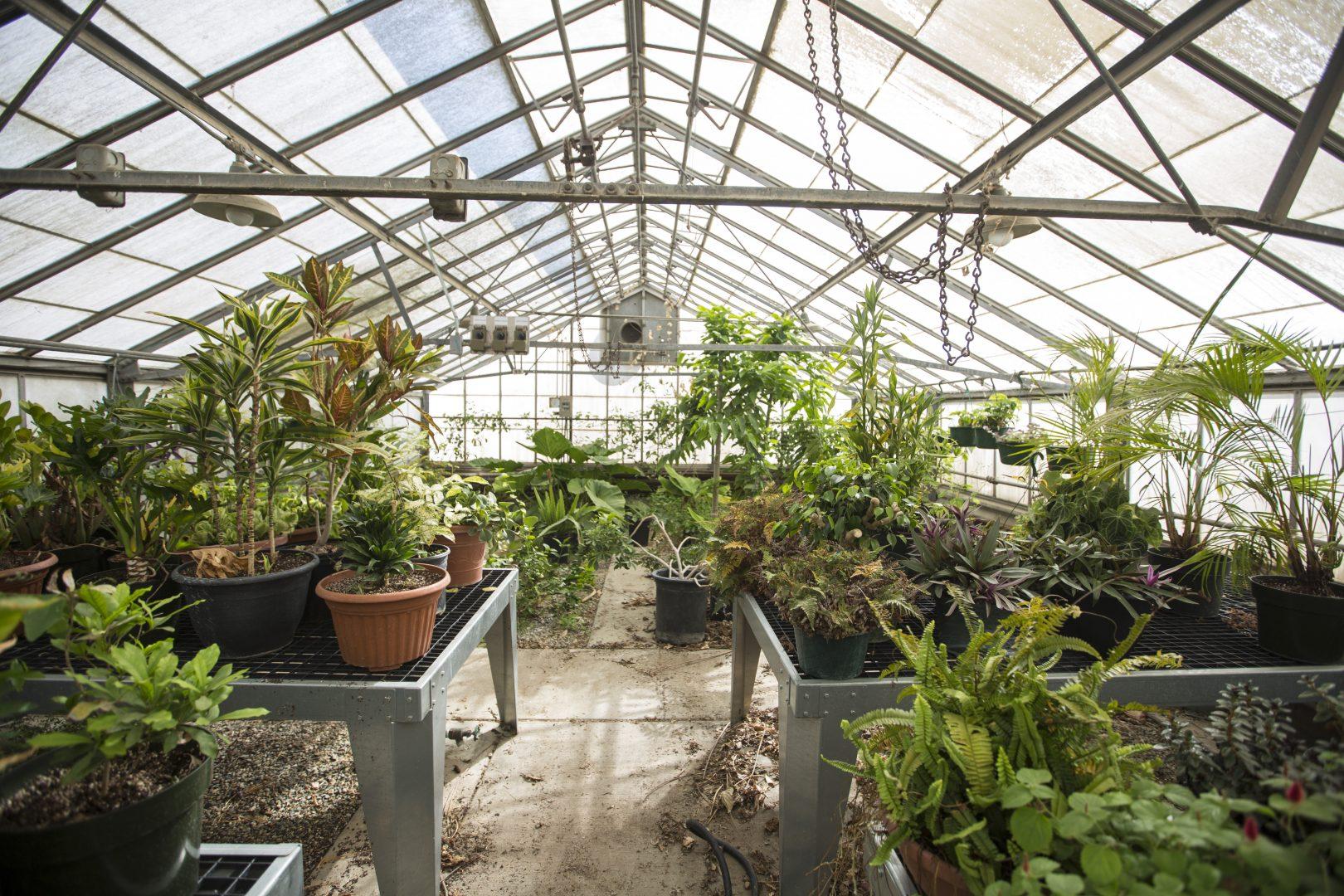There is a place on campus where students can get their fix on student-produced plants and produce. It’s the Fresno State Horticulture Nursery.
The nursery is part of Fresno State’s 1,011-acre farm. It produces house and landscape plants, trimmed flowers and vegetables. And it’s all for sale and good for use within the farm.
“All of our plants are grown here, so they’re acclimated to our area,” said Calliope Correia, an instructional support technician at the nursery. “We focus on drought tolerance and things that are happy in Fresno, so it’s a good place for the community to come out to buy stuff.”
The variety of plants and vegetables are sold directly to the Gibson Farm Market and also during some sale periods each semester.
The public can view and purchase the plants sales typically held on Saturdays. The first pop-up sale of the semester took place on Sept. 30, and sales brought in $5,000 in revenue with vegetables and houseplants being the most popular items.
“All the money that we raise from sales goes back into the farm so that it can be supported financially to be there for students who come out for labs and to get hands-on experience,” Correia said.
Correia focuses on horticultural therapy, which is facilitated gardening and plant-based activities by a trained therapist to obtain a therapeutic goal, as defined by the American Horticultural Therapy Association.
The nursery at Fresno State has been an ideal environment for her to continue exploring the therapeutic gardening concept.
“We have kids with disabilities that come out and plant gardens,” she said. “We do a garden at the children’s hospital, and then I do gardens in prisons.”
The idea is to get gardens planted in the community, Correia said.
“It’s very healing to get out and work and [to] get dirty,” she said. “There’s actually bacteria in the soil that releases endorphins in your brain that make you feel better.”
But Correia said her favorite part of the job is working with Fresno State students and seeing their outlook on plants evolve.
Crestina Batchelor was one of those students who had an evolving outlook on plants. She now works as a student assistant while continuing school for her teaching credential.
Batchelor grew up on a dairy farm where, she said, ag was all around her. But, after taking a ornamental horticulture course, she got a newfound appreciation for horticulture.
“[The course] kind of helped me when I took the class last spring to realize how cool it is to watch something being planted, three days later a pop up, and a week from there it’s flowering and blooming. It’s crazy,” she said. “It just helped me realize how much plant science is really hands-on and benefits me to know more than I did before.”
Batchelor conducted a tour through the different glass houses, each of which holds plants and vegetables at various stages of their development.
Inside the warm, sun-lit nurseries are rows of “six packs” — planting containers with six inserts — all with various lengths of thin green strands reaching toward the sun.
After the seeds are planted and the roots have something to hold onto in the soil, the plants are moved to a greenhouse with a controlled atmosphere to aid growth.
The mothers of all houseplants, literally, are held in what staff members refer to as the “Mother House.” These plants are the only group in the nursery not up for sale. Instead they’re used for the cuttings that students need to grow even more houseplants.
The tour of the nursery ended outside the central work area, next to a small, shaded courtyard with benches.
“You don’t have to be ag students to go and look at things on the farm,” Batchelor said. “The facilities are designed to be opened to the public, to educate the public.”
Educating students of all ages how to get more people interested in the affairs of local agriculture, Batchelor said.
“Ag is so concerned about people knowing our business that we forget to educate the public,” she said. The more kids know at a younger age, the more they become interested.”
And Batchelor encouraged community members that are interested in agriculture and horticulture to ask questions about the gardening process because their “question is never dumb.”
The Horticultural Nursery will be selling its greenery at the Fall Festival at the Gibson Farm Market on Oct. 21.




